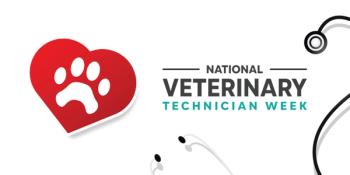
- dvm360 October 2021
- Volume 52
- Issue 10
The Dilemma: Promoting a secure, comfortable workplace
An environment that is respectful of employees and free of harassment may lead to increased job satisfaction.
The veterinary workplace is different from many other workplaces. Although pet patients have not been at risk for COVID-19 during the pandemic, their owners have been. Veterinary staff could mask up and maintain excellent hygiene but were not able to socially distance ourselves.
Additionally, a majority of the veterinary workforce is female, a trend reflected at The Creek Veterinary Center, where the staff of 43 workers consists of 5 males and 38 females. The clinic administration prides itself on the excellent level of staff professionalism. Mutual respect for pet owners, animals, and colleagues is a primary directive.
Recently, the center encountered a gender-sensitive issue that challenged the administrative staff but ultimately led to a more equitable work environment.
One of the male doctors asked to speak privately with the medical director. He told her that, on multiple occasions, technicians would comment on his wardrobe and how his shirt looked good with his tan. Additionally, they would often mention certain female clients who expressed interest in his looks and his clothes. He went on to say that occasional comments of this nature were not bothersome, but their frequency had started to make him feel uncomfortable. The medical director asked him if he thought this was just a matter of certain subordinate staff members trying to impress a supervisor. Although the doctor felt that it was a possibility, he considered the behavior to be unprofessional. Additionally, he felt that if the genders were reversed and a male staff member was making these comments to a female staff member, the discussion would have a different sense of urgency.
The medical director took a moment to contemplate his comments and agreed with her male staff member. Professional demeanor in the veterinary workplace should be gender neutral. Feeling comfortable and secure when working with clients and coworkers is a top priority and ultimately leads to increased efficiency and employee retention. On the other hand, problems can arise when there is an effort to make the veterinary work setting too sterile. Does this mean you shouldn’t hug a coworker on their birthday or tease someone in a good-natured fashion? The medical director was both challenged and somewhat enlightened.
She felt it was appropriate to advise all staff members that professionalism in the workplace required sensitivity and forethought before making gender-related comments. A comment that is well intentioned and complimentary could make a coworker uncomfortable. She went on to say in her memo that the best approach would be to avoid such comments completely or ask in advance if a coworker would mind you mentioning a gender-related observation. In conclusion, she noted that it is always important to remember that the home and social setting demeanor is not necessarily acceptable in the workplace.
The male staff member was very happy with the medical director’s response and the substance of the staff memo. Some staff members felt that the memo was petty and took a lot of fun out of their workplace banter. Do you think the medical director overreacted to a staff member’s concerns? We would like to know.
Dr Rosenberg’s response
I am not sure everyone understands that feeling comfortable and secure in the workplace is the single biggest consideration on the workplace satisfaction scale. Neither money, work schedule, nor even admirable bosses rank higher than workplace satisfaction. Feeling comfortable and secure without fear of harassment or gender-related innuendo leads to a productive, efficient workplace.
It is true that the veterinary workforce is unique in that the majority of staff members are female. You might think this would reduce the level of traditional workplace harassment problems but that is not the case. The answer really involves respecting a coworker’s personal space while simultaneously working shoulder to shoulder to care for ailing patients. This doesn’t mean you cannot be congenial, or comical, or even assertive and direct. Just consider that personal comments involving any gender-related subjects may be interpreted differently than intended. This way everyone can enjoy their workplace experience.
Articles in this issue
almost 4 years ago
What makes a cat a healthy pet?almost 4 years ago
Reunited in person and it feels so good!almost 4 years ago
Dental health test kit aids in preventing common disease in catsabout 4 years ago
Pet insurance proves valuable to many clientsabout 4 years ago
Dermatologic cytology 101: Tips for collecting samplesabout 4 years ago
10 Things to consider when selling a veterinary practiceabout 4 years ago
Canine Osteosarcoma: Teaching an Old Dog New Tricksabout 4 years ago
Benefits of design-build for creating the hospital of your dreamsabout 4 years ago
Veterinary cannabis for pain management: The endocannabinoidomeNewsletter
From exam room tips to practice management insights, get trusted veterinary news delivered straight to your inbox—subscribe to dvm360.






